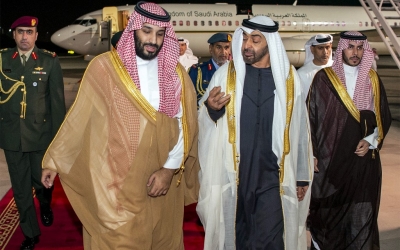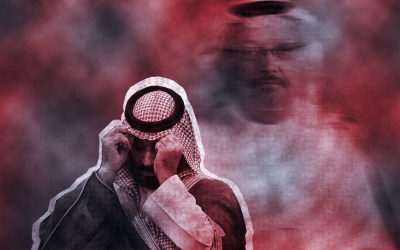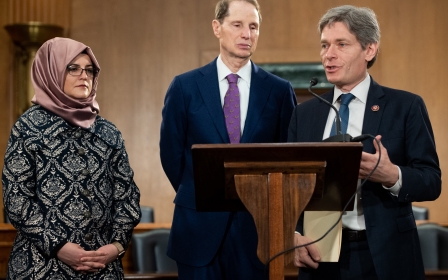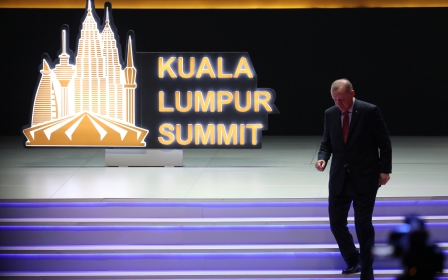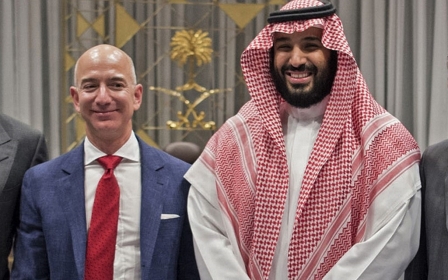Saudi Arabia's crown prince orders arrest of king's brother and nephew
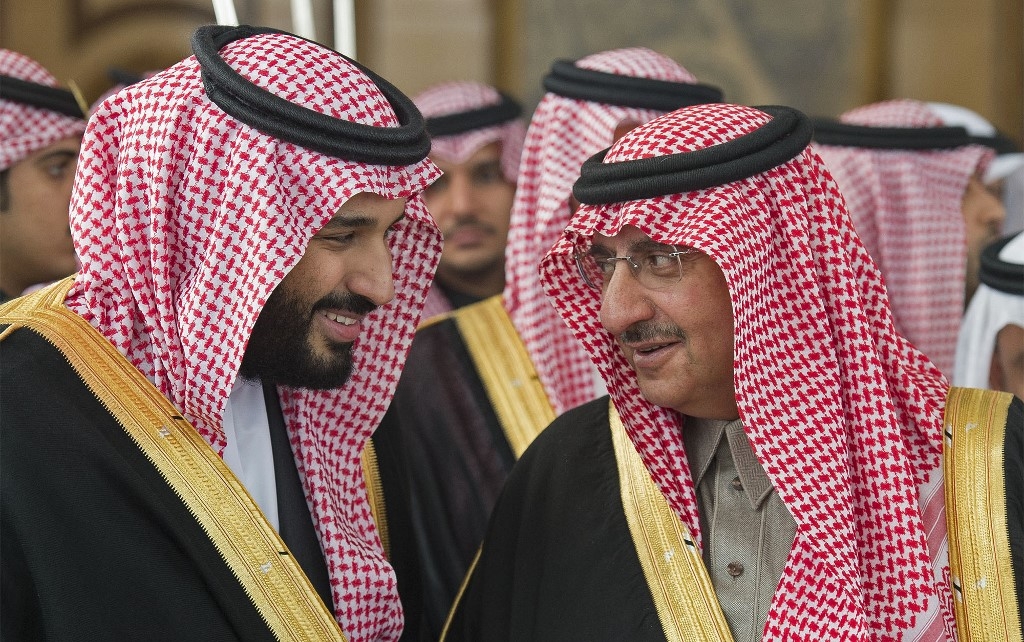
Saudi Arabia's powerful Crown Prince Mohammed bin Salman (MBS) has detained three senior members of the kingdom's royal family in an attempt to remove any potential rivals in his pursuit of the throne, people familiar with the matter have said.
The Wall Street Journal and the New York Times reported that Prince Ahmed bin Abdulaziz, King Salman's younger brother, and Prince Mohammed bin Nayef (MBN), the king's nephew, were arrested early on Friday.
The details of the charges could not be learned, but the two Saudi royals were accused of treason, the reports said.
Reuters said sources with knowledge of the matter had said the men had been detained for allegedly planning a coup.
The two men, who had once been in line for the throne, are now under threat of lifetime imprisonment or execution, people familiar with the matter said.
New MEE newsletter: Jerusalem Dispatch
Sign up to get the latest insights and analysis on Israel-Palestine, alongside Turkey Unpacked and other MEE newsletters
Saudi authorities also detained Prince Mohammed's younger brother, Prince Nawaf bin Nayef.
'King signed off on the arrests'
According to some reports, guards from the Saudi royal court arrived at the homes of the two men on Friday morning and took them into custody.
However, two sources, including a regional source, told Reuters that Prince Mohammed and Prince Nawaf, were detained while at a private desert camp on the same day.
MBS "accused them [the princes] of conducting contacts with foreign powers, including the Americans and others, to carry out a coup d’etat," the regional source told Reuters.
"With these arrests, MBS consolidated his full grip on power. It's over with this purge," the source added, indicating that no rivals remain to challenge his succession to the throne.
The regional source said King Salman had approved the latest detentions. "The king signed off on the arrests," the source said, adding that the king is in a mental and physically sound state.
The king met British Foreign Secretary Dominic Raab on Thursday in the Saudi capital Riyadh. Both King Salman and the crown prince attended a cabinet meeting on Tuesday.
Over the past few years, the princes standing in the royal family has diminished since King Salman, 84, consolidated power and installed his son, MBS, as crown prince and the kingdom's de facto ruler.
MBN was effectively placed under house arrest in 2017 after he was removed from the post of interior minister by MBS, a powerful position with oversight of troops and Riyadh's large intelligence service.
Meanwhile, Prince Ahmed had been allowed to come and go freely from the kingdom. He returned on Wednesday from a trip abroad for falconry - a popular pastime among Gulf nationals - but was arrested the next day, a person close to the family said.
'Erratic and stupid rule'
Prince Ahmed was reported to have considered placing himself in self-imposed exile in late 2018, a senior source told Middle East Eye.
The decision came after a rare show of criticism towards the kingdom's leadership when a group of protesters amassed outside his London residence. Prince Ahmed told Yemeni and Bahraini protesters that "the king and the crown prince" were to blame for the region's woes.
In a previous interview with MEE, dissident Prince Khaled bin Farhan urged Prince Ahmed to seize power from MBS to protect the kingdom from his "irrational, erratic and stupid" rule.
Prince Khaled, who was given political asylum in Germany in 2013, said that if Ahmed and Prince Muqrin bin Abdulaziz, another royal, were to unite ranks, then "99 percent of the members of the royal family, the security services and the army would stand behind them".
Since coming to power, MBS, 34, has demonstrated his iron grip on the kingdom by launching a brutal crackdown against dissenting voices, with activists, scholars, writers, economists and public figures arrested.
In 2017, MBS locked up at least 11 Saudi princes and hundreds of Saudi businessmen in a Ritz-Carlton hotel as part of an alleged anti-corruption drive.
Several senior figures were beaten and tortured and required hospital treatment at the time.
The next year he gained international notoriety by presiding over the killing of the journalist Jamal Khashoggi - an assassination the CIA believes the prince ordered.
In his actions in tightening his grip on power, MBS has fuelled resentment among some prominent branches of the ruling family.
Some critics have questioned his ability to lead after the murder of Khashoggi and the largest-ever attack on Saudi oil infrastructure last year, sources have said.
However, Saudi insiders and Western diplomats say the family is unlikely to oppose the crown prince while the king remains alive, saying the monarch is unlikely to turn against his favourite son, to whom he has delegated most responsibilities of rule.
Middle East Eye delivers independent and unrivalled coverage and analysis of the Middle East, North Africa and beyond. To learn more about republishing this content and the associated fees, please fill out this form. More about MEE can be found here.


